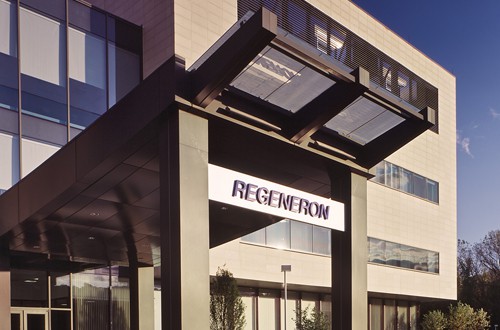
Regeneron has advanced its investigational double antibody cocktail for COVID-19 into a phase 3 trial, following positive results in earlier studies.
The study, which is being run jointly with the US National Institute of Allergy and Infectious Diseases (NIAID), will evaluate REGN-COV2’s ability to prevent infection among uninfected people who have had close exposure to a COVID-19 patient.
The antibody cocktail has also moved into the phase 2/3 arm of two adaptive phase 1/2/3 trials testing its ability to effectively treat hospitalised and non-hospitalised COVID-19 patients.
The phase 3 prevention trial is set to be conducted at around 100 sites across the US, and will enrol approximately 2,000 patients with the aim of assessing SARS-CoV-2 infection status. Meanwhile, the two phase 2/3 treatment trials are planned to be conducted at approximately 150 sites in the US, Brazil, Mexico and Chile, and will evaluate virologic and clinical endpoints.
“We are running simultaneous adaptive trials in order to move as quickly as possible to provide a potential solution to prevent and treat COVID-19 infections, even in the midst of an ongoing global pandemic,” said George Yancopoulos, co-founder, president and chief scientific officer of Regeneron.
According to Regeneron, preliminary data from these trials is expected later this summer, adding in a statement that the ultimate numbers of patients enrolled will depend on trial progress and insights from phase 2 studies.
The progress of REGN-COV2 is welcome news for Regeneron, after it had to abandon its Sanofi-partnered study of Kevzara (sarilumab) following disappointing results in a phase 3 trial. The two companies had been investigating the rheumatoid arthritis drug in mechanically ventilated COVID-19 patients, but data from that study found the drug was unable to prevent death or help patients come off ventilation.
Another IL-6 inhibitor, Roche’s Actemra (tocilizumab), also produced poor results in an Italian study, in which the drug was also unable to improve patients’ severe respiratory symptoms or reduce mortality rates when compared to standard-of-care treatment.
With Kevzara falling by the wayside, Regeneron is now pinning its hopes on REGN-COV2, highlighting its potential to diminish the risk of viral escape as a reason to advance the drug into large-scale human studies.
“The concept that drug cocktails can prevent viral escape has previously been demonstrated for traditional antiviral drugs used to treat HIV and other viruses. We now report the fundamental realisation that this can also be true for antibody-based therapies, supporting our hope that our REGN-COV2 cocktail can be a potent weapon against COVID-19 while preventing the emergence of viral drug-resistance,” said Yancopoulos.
The process of viral escape occurs when spontaneously arising mutant forms of a virus are able to evade a therapeutic’s blocking action, when that virus is under pressure from said ant-viral therapeutic. These mutant forms are then often able to survive and proliferate and may ultimately become the dominant strain of the virus.




